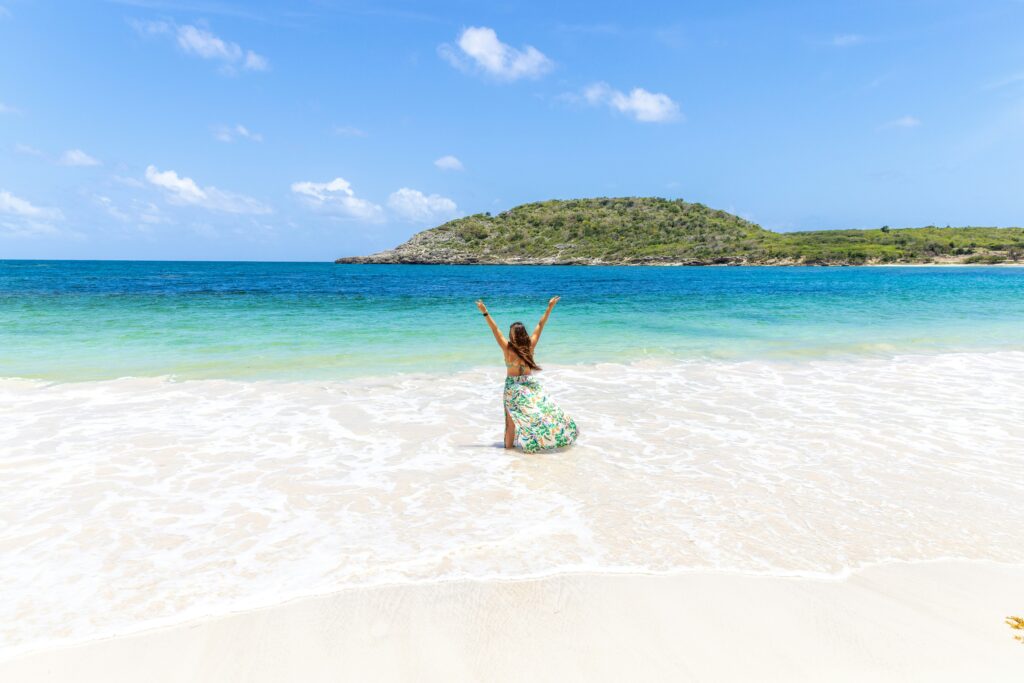
Understanding the Insurance Landscape in Antigua
When it comes to living or vacationing in a tropical paradise like Antigua, the beauty of the beaches and the warmth of the sun can sometimes mask the lurking reality of tropical storms and hurricanes. It’s no secret that the Caribbean is prone to severe weather. So, if you’re considering hurricane insurance, the question often arises: will your policy cover damages from storms that were deemed “pre-existing”?
What Does Hurricane Insurance Cover?
First off, let’s break down what hurricane insurance is. In a nutshell, hurricane insurance is a type of property insurance designed specifically to protect homeowners from damages caused by hurricanes. This includes wind damage, flood damage, and sometimes even personal belongings that may be affected.
But here’s where it gets a little tricky: many insurance policies come with specific terms that depend on the timing and nature of storms. For example, if a storm has already formed and you purchase or update your plan, you might find yourself facing some serious hurdles during the claims process.
Pre-Existing Tropical Storms: What Are They?
So, what exactly makes a tropical storm “pre-existing”? In the insurance world, it typically refers to any storm that was already on meteorologists’ radar—meaning it had a name and was actively monitored before you took out your insurance policy. Essentially, if a storm has been classified as such before you signed on the dotted line, many insurers may not provide coverage for damages resulting from it.
Let’s say Tropical Storm Andy began forming a week before your insurance policy took effect. If Andy were to cause damage, your insurance might not cover it, simply because it was “pre-existing.”
The Importance of Timeliness
If you’re thinking about getting hurricane insurance, timing really is everything. The best time to invest in this type of insurance is before the start of hurricane season, which typically runs from June 1 to November 30 in the Caribbean.
When to Buy Hurricane Insurance?
If you’re already in Antigua and a storm is brewing, you might be wondering if it’s even worth it to grab that policy right now. Unfortunately, waiting until a storm is on the horizon could lead to disappointment. The time to secure your insurance is ideally in the off-season. This way, you’re protected from any surprise storms that might crop up.
So, if you’re planning a trip or relocation, get ahead of the curve. Research different insurance options and get informed about your coverage.
Assessing Coverage Options
As with any insurance, there can be a world of differences between policies. Some policies may only cover wind damage, while others might include flooding from storm surge or heavy rains, which can be crucial in a place like Antigua.
Types of Insurance Coverage
Homeowners Insurance: Basic homeowners policies might not include hurricane coverage, particularly for flood damage. Check the fine print.
Flood Insurance: Not always included in homeowners insurance, this coverage is often a separate policy that’s crucial in coastal areas. Considering Antigua’s situation, it’s something you might want to look into.
Supplemental Policies: If you have existing homeowners insurance, you can often buy supplemental policies that specifically cover hurricane-related damages.
Comprehensive Coverage: This is the all-you-can-eat buffet of insurance. Comprehensive policies typically cover a wide range of disaster-related damages, but you must read the exclusions carefully.
Are There Exceptions?
While many policies might shy away from covering pre-existing storms, there can be exceptions. Some insurers might offer coverage if you can provide proof that the damage occurred after you secured the policy. In these cases, thorough documentation—like photos or damage reports—will be your best friend.
Document Everything!
One of the best things you can do, whether you have insurance or are thinking of getting it, is to document your property meticulously. Take pictures and write down everything—this will not only help in insurance claims but also provide a clearer picture of your situation after a storm.
Understanding Claims and Limits
Even if your policy does cover hurricane damage, you have to be aware of the limits and deductibles—and let’s be honest, no one loves reading through the fine print. Make sure you understand your coverage limits before disaster strikes.
Claiming After a Storm
If you find yourself in the unfortunate position of needing to make a claim, it’s crucial to act quickly. Reach out to your insurance provider as soon as it’s safe to do so and be prepared with all necessary documentation. The speed with which you file your claim can really make all the difference.
Conclusion: Staying Prepared
In summary, navigating hurricane insurance in Antigua can be a maze. To avoid nasty surprises, make sure to secure your coverage well before hurricane season begins. Familiarize yourself with what exactly is covered, dig into the fine print, and don’t hesitate to ask questions. The tropical beauty of Antigua doesn’t change the reality of storms; having your insurance sorted out can provide peace of mind that lets you enjoy your slice of paradise.
And who knows? The next time a storm is on the horizon, you might just find yourself thanking your past self for taking the time to prepare.
[Related: Learn more about tropical storm preparedness and insurance options.]
**Related Reading:** – [Related: How to Plan a Solo Trip on a Budget] – [Related: Top Destinations for First-Time Solo Travelers] **#SoloTravel #Hurricane #Insurance #Cover #PreExisting #Tropical #Storms #Antigua**